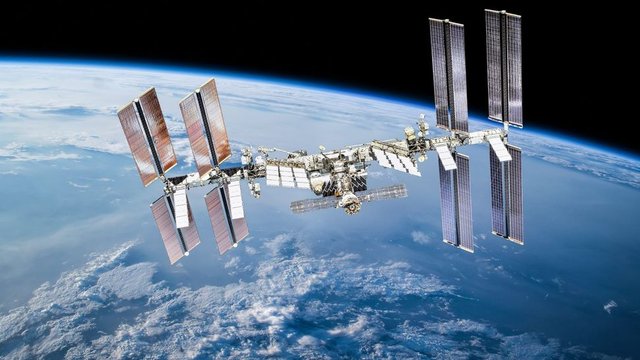A drug shows promise for preventing the extreme bone loss that astronauts experience on lengthy space missions, a mouse study suggests.

photo taken from https://unsplash.com/
Humans on Earth normally lose bone tissue as they age, but in space, the low levels of gravity reduce the "mechanical loading," or strain placed on bone that drives it to grow. This microgravity leads astronauts to lose up to 1.5% of their bone mass per month spent in space. Exercise can help increase the mechanical loading on bones, but it's time-consuming, may be impractical for injured astronauts and may not fully prevent bone loss.
In a new study, published Sept. 18 in the journal npj Microgravity, scientists report that a drug called BP-NELL-PEG "successfully diminished" spaceflight-induced bone loss without causing any side effects in mice on the International Space Station (ISS). The treated mice showed increased bone density, while the bone density of untreated mice on the ISS declined significantly.
"Our findings hold tremendous promise for the future of space exploration, particularly for missions involving extended stays in microgravity," co-author Dr. Chia Soo, a plastic surgeon at UCLA Health, said in a statement.
BP-NELL-PEG is a tweaked version of the protein NELL-1. In animal studies, the protein has been shown to boost the activity of cells that form bone tissue, while inhibiting the cells that break bone down and jump-starting processes involved in bone repair. The drug is also set to be trialed in humans to treat adults undergoing surgery for degenerative disc disease, in which the discs of the spine wear out over time.
In the mouse study, "NELL-1 was chosen because it is one of a few molecules that can not only minimize bone loss, but may be able to restore bone that is already lost," Soo told Live Science in an email.
The team adapted the drug to remain active in the body longer, so that fewer injections would be needed. They also coupled it with a drug used to treat osteoporosis, a disease in which bones weaken over time, called bisphosphonate, so that the drug would be more likely to target bone.
As part of the SpaceX CRS-11 mission in 2017, 20 mice were sent to the ISS, while 20 were kept Earthside at Kennedy Space Center in Florida. In both groups, half of the mice received BP-NELL-PEG and the other half received a salt solution. After nine weeks, the treated mice in space and on Earth showed a significant increase in bone formation. The untreated ISS mice showed a decline, while the untreated Earth mice remained stable.
The authors noted limitations of the research. For instance, due to time constraints, they couldn't take small-scale CT scans or closely track the behavior of the mice, so the effect of other factors, like stress, on the rodents' bone loss is unclear. They also noted that, under current conditions on the ISS, they wouldn't be able to repeat or expand upon these experiments.
Nevertheless, the authors hope that someday, BP-NELL-PEG will be used by humans in space and possibly on Earth.
"If human studies bear this out, BP-NELL-PEG could be a promising tool to combat bone loss and musculoskeletal deterioration, especially when conventional resistance training is not feasible due to injuries or other incapacitating factors," Dr. Kang Ting, co-author and a professor at the Forsyth Institute in Cambridge, Massachusetts, said in the statement.
Next, the authors will review data from additional mice sent to space on the SpaceX CRS-11 mission and then returned to Earth. With these rodents, they hope to learn more about how to help astronauts recover from long trips to space. The team is also testing BP-NELL-PEG in a large animal model of bone loss, Soo told Live Science.
NASA is aiming to send its first crewed mission to Mars as soon as the 2030s, so only time will tell if this drug could potentially be used by the astronauts on board.
ok
Downvoting a post can decrease pending rewards and make it less visible. Common reasons:
Submit